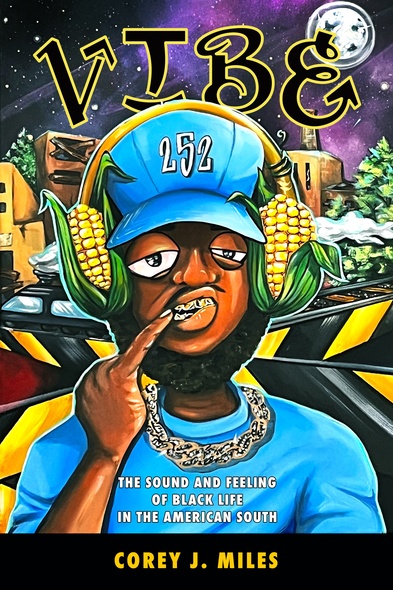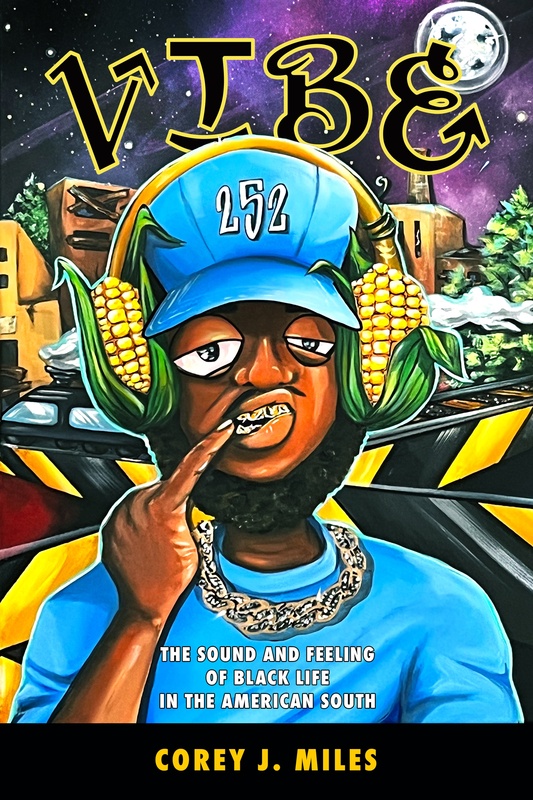
Vibe
The Sound and Feeling of Black Life in the American South
Where exactly does the South begin and end? Current maps are too rigid to account for the ways Black people have built the South while being simultaneously excluded from it. Drawing from the different ways Black artists in the 2-5-2 area code in North Carolina use "vibe" as a mode of knowing and communication, author Corey J. Miles illustrates how Black feeling and unfeeling offer entry points into the contemporary South that challenge static and monolithic notions of the region. Placing the local artists in conversation with other southern cultural creators such as 2 Chainz, Rod Wave, and Rapsody, these ethnographic narratives demonstrate that there are multiple Souths, with overlapping and distinct commitments to working through pain, sound, and belonging.
In Vibe: The Sound and Feeling of Black Life in the American South, Miles narrates how southern Black sound, feeling, and being is constantly policed, surveilled, and criminalized. In doing so, he re-narrates the region as the "carceral South," to capture the ways people in the South and beyond can feel the emotional weight of the criminalization of Blackness. Pain music, a subgenre of trap music, is used to take the listener to moments of violence to allow them to hear the desires, anger, and silences that bind Black life in community. Through conceptions of ratchet, hood, and ghetto, Black artists turn away from respectable images and unmap the South. In trap music, they move the South to a space where multiple modes of being find respect and care.
Precise cultural commentary and the author’s deep personal connection to his subject lend power to this revealing study.
Vibe is written as a song itself, which means it extends beyond the realm of higher academia. In fact, I argue that Vibe is a song that needs to be heard more by those outside of the ivory towers.
The importance of this book cannot be understated. It should be required reading for any graduate program concerned about training socially conscious and methodologically sound scholars who endeavor to provide an authentic and fulsome accounting of any aspect of the social world: a uniquely sociological project that this book takes very seriously.
Vibe is an important exploration of the aesthetics of Black life and hip-hop in the rural American South.
In a fresh and personable style, Corey J. Miles examines and theorizes trap music as a necessary emotional response to cyclical, racialized trauma. Vibe is a refreshing and needed addition to the growing body of hip-hop scholarship on the contemporary American South.
Vibe is a lesson on emotions, hip-hop, the Black South, and storytelling. A must-read.
Corey J. Miles is assistant professor of sociology and Africana studies at Tulane University. His work has been published in the Journal of Hip-Hop Studies, Cultural Studies, and the Howard Journal of Communication.




